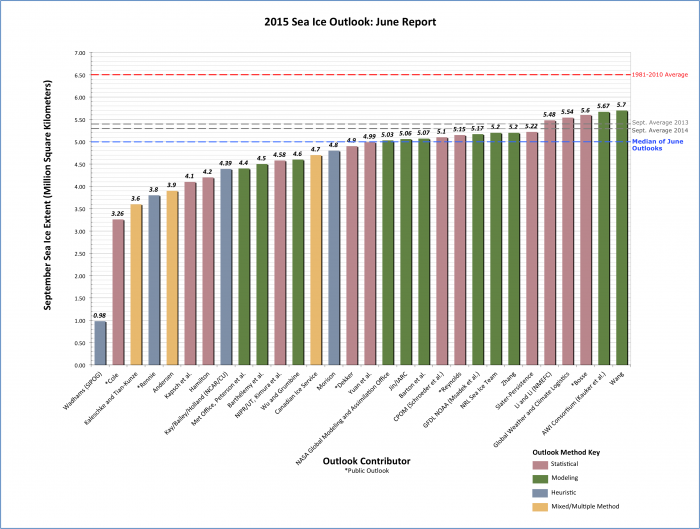Which is the odd one out?
(from the Graun).
[Update: and the answer is, the one on the far left, because it isn't odd; as most people answered, with varying degrees of formality.]
[Update, from the comments, CR offers us a rather easier "spot the odd one out":]



1st one.
[But... which is the first? -W]
Easy. I will leave the answer unsaid. However, my anagram will stand as a testament:
TOOTHNDITDO
["Odd Tooth Nit" is as good as a wink to a blind man -W]
The unbordered red square. Is this from some kind of psychological or personality typing test?
Abbreviation, not anagram. Good grief. I was due for a smackdown anyway...
I'm not going to waste my time, but my guess is a case could be made that each of them is the odd one.
[Be playful. But you're close -W]
Agreed with Everett. The first one seems to be the only one to exhibit second-order oddness. It's the only one not to be odd in some first-order respect.
The 1st one on the left. Large square, red inside, black border.
The first one on the left; it is the only object that is *not* unique in color, size, or shape.
I could make a case for any of them, though the one on the far left would be a bit of a challenge.
The middle, since it's shaped like the first letter of both "odd" and "one". :-D
The one at far left.
Each has 4 attributes (think of coding attributes for objects)
Shape
Color
Border
Size
Numbering from left, each of 2-5 differs from all the rest on exactly one if those attributes.
#1 does not, as every attribute, square, red, dark border, size is shared with 3 others.
So in some sebse it is iodf because it is "more like" the rest.
An ill-posed problem
The only one that has no difference is the different one.
There could be 4 based on either border, shape, size or color; so then it follows that the first on the left is not distinct related to the others in those characteristics. So by not 'standing out', it is unique.
This problem reminds me of Wittgenstein's remark in Culture and Value:
"When I came home I was expecting a surprise & there was no surprise for me, so, of course, I was surprised."
Nick, I don't think the problem is ill posed. It admits naturally of a unique answer when analysed in second order predicate logic. To be odd is to fall uniquely under some contextually determined predicate. The problem asks for *the* odd one out. "The" signals a definite description, according to Russell's analysis of the meaning of "the". We may thus search for an item that uniquely falls under some (first order) predicate and also such that it it the only one to fall under *any* such predicate. But there is no such item, in this case. Hence "odd" can naturally be interpreted to refer to a second order predicate. There indeed only is one item that falls under the second-order predicate: "... doesn't uniquely fall under a first-order predicate.
So, finally, each item uniquely falls under either a first- or second-order predicate. The first item is *uniquely* "odd" in the sense that it is the only one that isn't odd in some first-order respect. It is thus the only one to fall under this second-order predicate. It is thus *the* odd one out.
JM had my (correct) answer. Thanks, P-NH, for the more formal presentation. This is in part a trick question based on the meaning of "odd."
The 1st, 3rd and 5th are odd; oddly numbered, that is.
I usually scored damn near 100 on IQ tests, so I'm out of gas.
Except, WC ain't talkin' so I suspect nobody has answered it correctly.
it's a lot like this!
http://earthobservatory.nasa.gov/Features/GlobalWarming/images/anthropo…
look at the top 3 plus (link with), sea-level rise, proxies, stabilizing global sea-ice, and figure which one is the 'odd' one when your linear extrapolations fail from Hansen 88 forward? You may be close to a religious conversion . . .
1st one.
It's the only one that has all its attributes in common with others.
Must admit, when I see this kind of thing, I automatically think of this:
https://xkcd.com/169/
I put this under the category of smart-arsery - formally correct and answerable, but very likely to catch out people who are unfamiliar with the category of question.
There is an interesting analogy in computer programming, with people who use things like operator precedence, default variable initialization or even the ternary operator.. yes it may be correct but you are setting some unpleasant traps for the next person.
[I disagree with you. Its a playful use, a second-order use, of "odd one out". But I may be biased, since I got it right. Or at least I assume I did; I didn't bother check I was right, since once you get it its obvious -W]
I think I got it right too but if it were a timed test, I might have gone for the first item I spotted with a non-common attribute and moved onto the next question.
[My son, who at 17 and doing maths sees a lot of this kind of stuff, said "far right" in 1 second. When I said "wrong" (hey, this is maths, there's none of that "well, that's a very interesting answer which we could explore more, but is there anything else you can see...?" stuff) he said "far left", with the correct reason, in 5 more seconds -W]
Nick gets it.
All are unique in their mix of characteristics but the first, running left to right, is the only one sharing attributes. It seems to be the odd one out.
Far right. It is the only choice with no choice after it.
[You are imposing your imperialistic left-to-right reading order; I refuse to be oppressed -W]
With no asymmetry to complicate things then, the third is the only one with an equal number of choices on either side.
Thanks, that was fun! I shared it on FB, with due credit, and my friends got a kick out of it.
http://www.arcus.org/files/resize/sio/23168/sio_bargraph_final-700x529…
from
http://www.arcus.org/sipn/sea-ice-outlook/2015/june
I guess there will be no prizes for saying Wadhams is the odd one out there.
[Nice find. I'll add it to the post -W]
Another out-of-bounds observation, I think:
http://www.landscheidt.info/?q=node/297
Six of us debated over it on a lunch break. Green is out.
Climate scientist fears murder by hitman
http://www.thetimes.co.uk/tto/science/article4507949.ece
Is this
a) Wadhams believes it sensible to resort to arguments that are a little 'way out there' to defend his position
b) times doing a character assassination piece,
c) Wadhams losing it, or
d) Vested interests really wanting to resort to murder to silence people when just letting observational evidence speak for itself seems a much easier and less dodgy way of letting Wadham's credibility be demolished.
b seems most likely and kindest interpretation for Wadhams?
If Wadhams lived in the USA I'd say all bets are off. I don't know if the UK holds the same level of fringe extremists that we have here.
David Helvarg's "War Against the Greens" is now over 20 years old. Had I known he was going to update it (in 2004) I could have added a couple stories that I was personally acquainted with.
Without having read anything about Wadhams' latest claim, I'd bet that he received a death threat and it got blown out of proportion from there.
http://scienceblogs.com/insolence/2015/07/24/nicholas-gonzalez-the-late…
http://greatwhitecon.info/2015/07/professor-peter-wadhams-complaint-to-…
[Sorry, been on hols, so I missed the fun. Still, that seems to end happily: Wadhams got a bit wacko but backed off after thinking about it, would be the worst you could say; and at best, just got a bit over-enthusiastic talking to a journo. Still, you'd have thought an experienced bloke like him would have thought to himself "hmm, why am I saying this explosive thing to a journo? Is he talking to me because he's my friend and we're having a nice chat? Or is he perhaps looking for a great quote for a story?" -W]
Did anyone notice the following
[quote]Wadhams (Sea Ice and Polar Oceanography Group), 0.984, Heuristic
We use entirely statistical extrapolation methods based on measured values of sea ice extent (from satellites) and sea ice thickness (from submarine voyages).
[Editor's Note: Upon review by the SIPN team, this outlook has been listed as heuristic in the Sea Ice Outlook report.][/quote]
Is there any way to interpret that as anything other than 'Don't believe that summary of the method'?
If that isn't a bit embarrassing, what would be? It becomes hard to imagine anything will be embarrassing enough to stop him drifting further into 'gone emeritus' land.
Even his complaint, if accurately reported, seems to admit he believed a murder conspiracy 'for a short time'. If that is the text of his complaint, does that represent a justification for a newspaper running such a story: Is there a public interest argument that the public should have the right to know if professors are 'going emeritus'? Perhaps a temporary loss of sanity deserves some privacy but if there are other indications of problems.....
Professor Wadhams is not amused and has complained to the IPSO:
"The writer of this article, Ben Webster, phoned me up cold in my office at Cambridge University on Thursday 23 July, saying that he was writing a piece on the retreat of sea ice in the Arctic, and whether it was increasing or not. We discussed the scientific data, then he asked who else was working in this field in the UK, in order to contact them. I mentioned that there are not many others in this field, since three of the leading figures died within a short space of time in accidents in 2013. He asked for further details.
I asked that this be completely off the record because of (a) the sensibilities of relatives of the deceased (Prof Laxon’s partner was particularly upset by the subsequent publication),
(b) my own scientific reputation (I did not want to be made out to be a crazy person),
(c) the fact that these deaths were investigated and were very clearly simply an extraordinary coincidence.
He raised the question of whether they were murdered. I agreed that for a short time I thought that they were, since I had had the experience of being run off the road at the same time by a lorry, but that it was very clear afterwards that the three deaths were individually explainable accidents.
I did not make any of the statements enclosed in quotation marks by the reporter. Webster promised that this was in confidence and that if he wanted to use it he would contact me first. The next thing I saw was the article plastered over Saturday’s “Times”. He had clearly done some research in procuring photographs, but did not bother to contact me, and broke his promise of confidentiality.
The publication, subsequently picked up by the Sunday Telegraph and Mail on Sunday, has substantially damaged my reputation for scientific integrity, and I believe that this was the deliberate intention.
[See my reply to CR above. The idea that anyone is knocking off sea ice scientists in the UK is, incidentally, totally implausible. Apart from anything else they're just not important enough. It is a small "community", though, so losing a few makes an impact. Oh, but hold on - there's another part to this conspiracy - "leading" sea-ice scientist W M Connolley "voluntarily" retired from science at about the same time :-) -W]